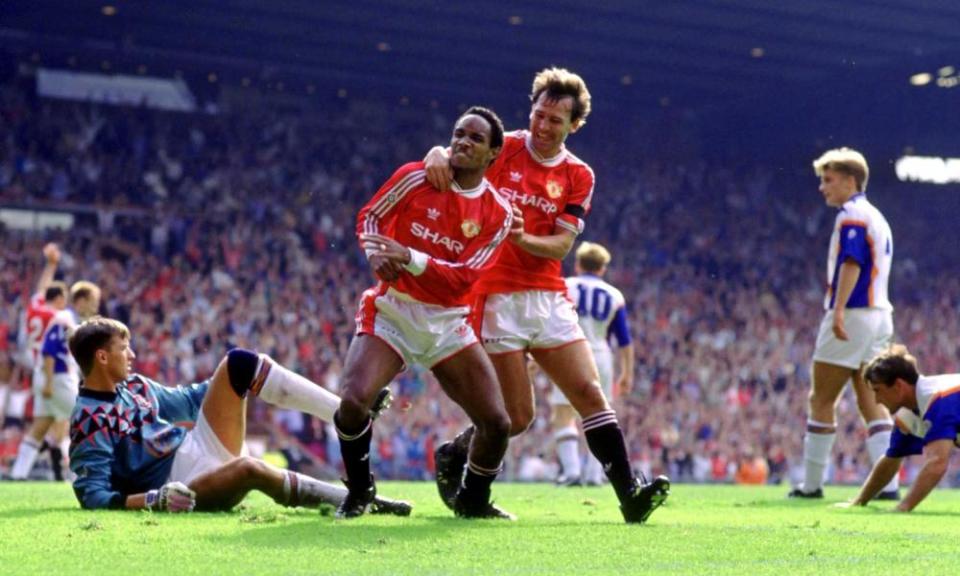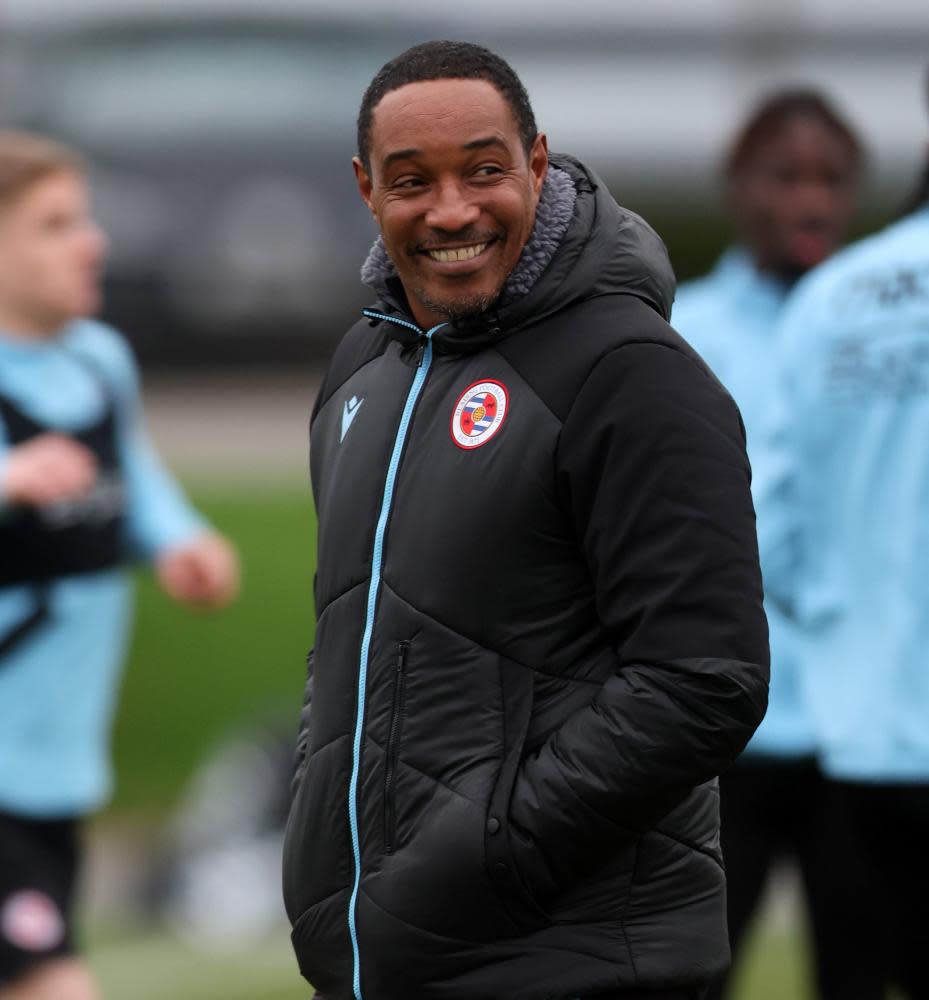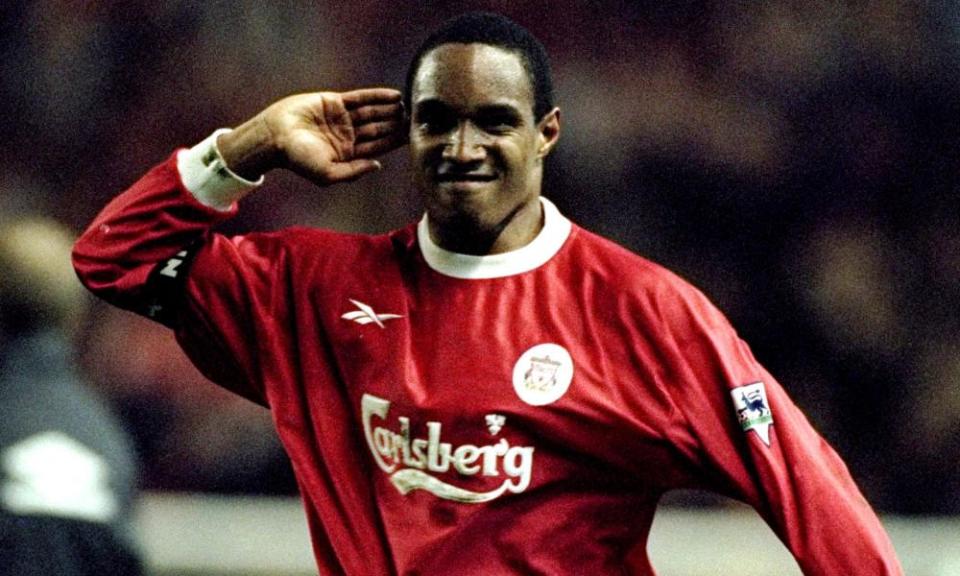Paul Ince rolls back into Old Trafford primed for another battle

Everybody remembers the story of how Sir Alex Ferguson broke up a party at Lee Sharpe’s house, with Ryan Giggs also there, mainly because it was so hilarious and for the way that both of the Manchester United players have told it. According to Sharpe, before Ferguson absolutely carpeted him and Giggs, the manager “had the face on with bits of froth at the corners of his mouth”.
Not everybody will remember what Ferguson did next. He sent Giggs to live with Paul Ince for six months or so in an attempt to keep his young star on the straight and narrow. At which point, it is probably worth clarifying that it was not just Ince – rather Ince and his wife, Claire.
Putting Giggs with Paul Ince alone at that point, in the early 1990s, would not have been smart. Ince, who is six years older, had signed for United from West Ham in 1989 – aged 21 – and it is fair to say that he enjoyed a night out, too. So perhaps this is really a tale about Claire, Ince’s rock, and what an incredible woman she is. But what it showed was the trust that Ferguson had in Ince, how he always saw him as a leader, somebody to guide his first great team at Old Trafford.

The memories of Ince’s United career will hurtle back on Saturday night when he emerges from the Old Trafford tunnel as the Reading manager for the FA Cup fourth-round tie. Back in his playing days, Ince would walk out last, pulling on his No 8 shirt as he did so, and that was the point when he was primed for battle, to do whatever it took to win, to be – as he liked to put it – the Guv’nor.
Talk to anybody who knows Ince and one word recurs – relentless. Ince was the boy from Dagenham who had very little, no stability at home, who had to fight for everything and would do so literally with the street gang that he was drawn into as a teenager. When it was game time at United, it was as if he flicked a switch. The power would surge and continue surging.
Ince arrived at Old Trafford under something of a cloud owing to the publication of a photograph of him in a United shirt before the transfer from West Ham had been signed off. It was not his fault. The picture was taken on the understanding that it would be used only when everything was done. Hearing an erroneous rumour that it was, the photographer and the Daily Express jumped the gun. Ince was a villain in the eyes of the West Ham support.
He would also leave United in acrimonious circumstances, forced out by Ferguson in 1995 after their sometimes volatile relationship soured; the manager felt that Ince had become too arrogant and lacked the tactical discipline to play how he wanted him to play. Ince then complicated his United legacy by returning from Internazionale to join Liverpool.
But what about the years in between when Ince was one of the principal catalysts for change at United? He started slowly. His dream was to play with his idol, Bryan Robson, and, at first, he seemed to be in awe of him. The sheer scale of United as a club was a problem. Ince would not score a league goal until March 1991.

By then, he was an FA Cup winner after the run that saved Ferguson and, by the end of 1990-91, he had a European Cup Winners’ Cup medal, too, having been part of the victory over Barcelona in Rotterdam. It was becoming clear to the United support why Ferguson had placed his faith in him. The following season brought the League Cup but the agony of missing out to Leeds in the title race, Ince now a mainstay in midfield, and then it truly came together.
Ince has said that the highlight of his career was the 1992-93 title win, United’s first in 26 years, which would not have been possible without him. Ferguson signed Eric Cantona from Leeds in November and played him up front with Mark Hughes while Brian McClair dropped back into midfield, although only nominally. McClair’s instinct remained to get forward, leaving Ince to hold it together in what felt like a 4-1-5 formation, the width supplied by Giggs and Sharpe or Andrei Kanchelskis.
Ince was a one-man wrecking crew, the best midfielder in the league that season and in the two that followed; an automatic pick for the team of the year each time. He enabled everyone around him to play but, boy, did he play himself, bringing goals – some spectacular – and barnstorming dribbles. Things got even better when Ferguson added Roy Keane to play alongside Ince in 1993-94, United winning a league and FA Cup double.
Ince’s Guv’nor nickname was the source of debate. It reflected his brashness – the number plate on his car was GUV 8 – and there was a north-south divide element to it; the assumption in Manchester that this was what you got with cockneys. It was the same with David Beckham and Teddy Sheringham, Ferguson once muttering about there being “something in the water down there”.
Yet Ferguson knew if you did not have a character, you did not have a player, and what the United fans loved about Ince was how he would fight. That included him dispatching Anders Limpar into the Old Trafford hoardings during the 21-man brawl with Arsenal in October 1990 and his involvement in the Cantona kung fu kick game at Crystal Palace in January 1995.
Ince was tried at Croydon magistrates court for threatening behaviour and assaulting a Palace fan, with the prosecution alleging that after the Cantona incident Ince had beckoned opposition supporters to him and said: “Come on. We will take the fucking lot of you.” He would be found not guilty.
Ince is rather more cerebral these days, his head ruling his heart in the Reading dugout, his renaissance as a manager the story he would rather push. The United crowd will see someone else.

 Yahoo Sport
Yahoo Sport 




































































